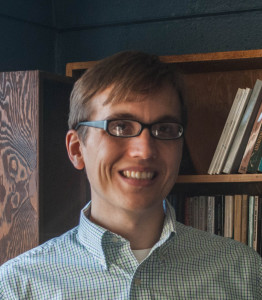This spring semester welcomes back Nate Jackson, 
a 2006 alumnus, to serve as an adjunct philosophy professor.
The latest addition to Capital’s shrinking philosophy department, Jackson is currently teaching Classical Greek Philosophy and Ethical Issues and Contemporary Religious Convictions, the general education capstone.
Sitting in Peter Horn’s abandoned office, surrounded by pounds of what is assumed to be great philosophic literature, Jackson gave a brief description of his undertakings in academia thus far.
He first came to Capital in 2003, where he immediately declared philosophy his major and rushed Phi Mu Alpha.
Jackson said his experiences with professors Horn, Michael Hiltbrunner, and Tom Christensen helped him understand “the transformative potential of doing philosophy.”
After graduating a year early from Capital, he attended the University of Chicago, where he completed a master’s degree in humanties. Jackson then taught for two years at Chicago area institutions before receiving a doctorate in philosophy from Baylor University last spring.
An array of philosophical interests, including American philosophy and contemporary moral theory, caught his attention along the way.
Jackson’s dissertation, titled “Unprincipled Moral Learning: Dewey’s Pragmatism and Dancy’s Particularism,” discusses in great detail the concept of moral formation, asking “How do we form good character?”
This question has become the forefront of Jackson’s research.
“You look at morally sensitive people, who sort of have a good vision of the moral features of a situation,” Jackson said. “How is it that they come to have that ability? How do we train people to form the right kinds of characters so that they’re going to be able to see what ought to be done in a situation?”
To answer his own question, Jackson said the answer lies in everything around us.
“I think part of how we learn to get a good view of a situation, to be sensitive, is through activity,” Jackson said. “I come to be able to describe a situation well by engaging in activities with others, submitting my descriptions to them–even in conversation and through action–and then having them respond.”
“Confronting this problem concerning the theory of moral particularism,” Jackson said, “actions are right, not in virtue of conformity to a rule, but there’s still a right thing to do. What makes an action right is just features of the world around us. We must train people to be sensitive to morally salient features.”
Jackson’s probing questions our ideas of raising kids and educating people, who must be trained to handle a complicated world.
“The view of moral education becomes much more like learning a language, where you pick it up through communal activity, it’s carried over through habit, and is then applied to new situations,” Jackson said. “It’s more akin to learning practices of description…While rules may be important, they don’t make morality,” Jackson said.
Apart from being a professor, Jackson is a husband. He met his wife at Capital, who was also studying philosophy major. After furthering her theology education, she was called back to Ohio to serve in a Wooster congregation while Jackson was still working on his dissertation in Texas. He said he couldn’t handle the time apart, so, in the summer of 2013, he came back to Ohio for good.
Jackson said he was met with many great teaching opportunities, both at Capital and Akron University.
Hoping to stay at Capital for some time, Jackson shared how his perspective of Capital has changed from student to faculty status.
“It’s absolutely fantastic to have these people, who were great teachers, now as colleagues,” Jackson said. “It does change the conversation a little bit.”
Jackson is now working on editing some of the papers that have come from his dissertation paper while still continuing to research moral particularism and moral education.

